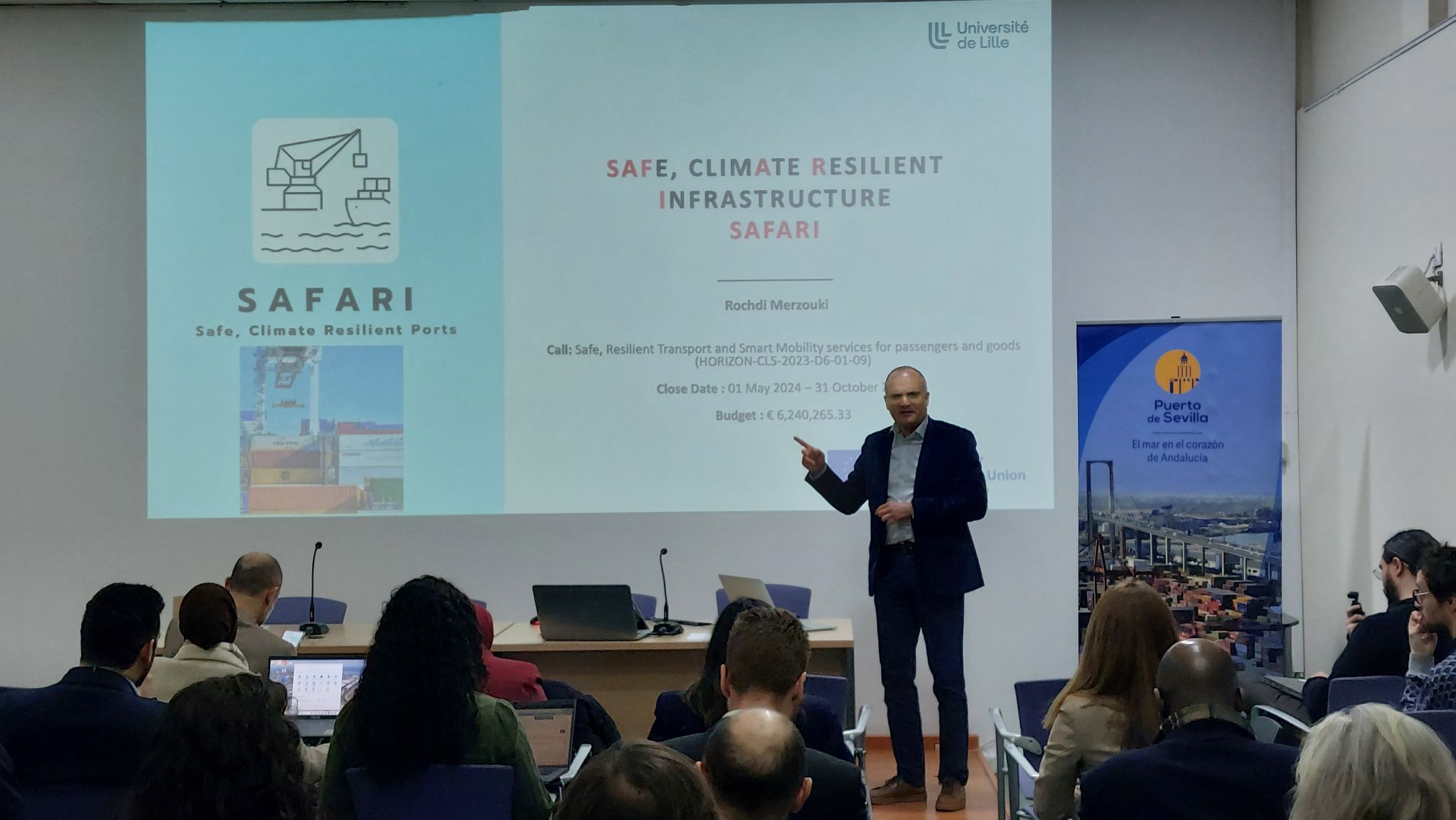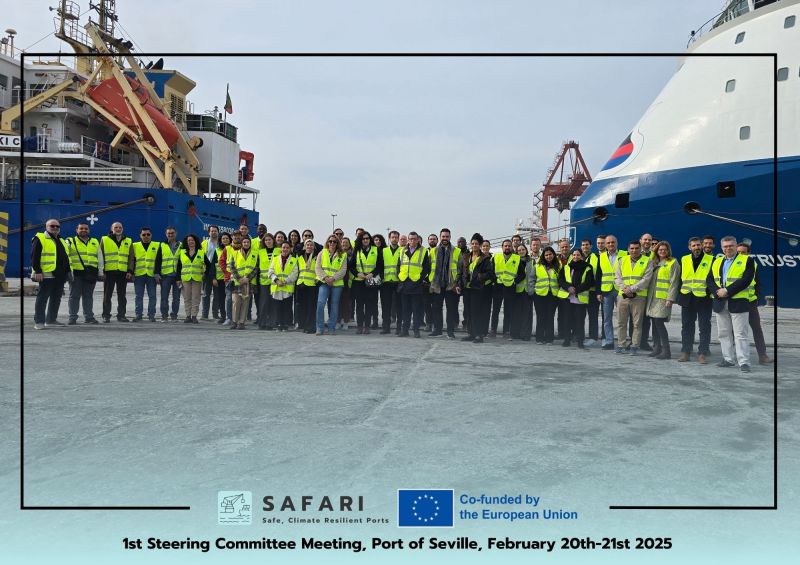Explore vacations
Choose a Continent
Choose a Destination
This February 2025, the SAFARI consortium gathered in Seville for its first Steering Committee Meeting, hosted by the Port Authority of Seville. This two-day event brought together partners from across Europe to share progress, exchange experiences, and collectively shape the roadmap for the months ahead.
The meeting opened with a warm welcome from Ángel Pulido, General Manager at the Port Authority of Seville, who highlighted the port’s ongoing efforts to integrate circular economy practices into its operations as a way to mitigate the impacts of climate change.
Following this, Rochdi Merzouki from the University of Lille, SAFARI’s coordinator, introduced the project’s overall vision and objectives, notably, to develop innovative solutions ensuring that at least 80% of port operations can be maintained during extreme weather events.

Partners then heard from Noemi Monterde of Fundación Valenciaport, who shared valuable lessons learned from the DANA storm and presented how the Port of Valencia is now implementing a comprehensive Port Climate Resilience Scheme to improve preparedness and adaptation.
The morning continued with an interactive stakeholder mapping workshop, facilitated by We Right Click and the Antwerp Management School.
This co-creation session focused on identifying key actors within each pilot and replication port and clarifying their respective roles in the critical phase immediately following an extreme weather alert.
By mapping these interconnections, partners are building a strong foundation for more efficient coordination and response during emergencies.
In the afternoon, two external experts joined the meeting to share their insights:
- Dr. Darshana Godaliyadde, from Resilience4Ports / ICSI, presented how global port networks are paving the way for future-proof resilience amid decarbonisation and digital transformation.
- Luisa Kempf, from EUROGATE Group, shared best practices from North German terminals in ensuring operational safety and continuity under all weather conditions.
Their contributions enriched the discussions and provided concrete examples of how resilience is being implemented across Europe’s port sector.
The second day began with a guided visit of the Port of Seville, where participants explored its terminals and distinctive lock system, a key infrastructure that protects the city from flooding and ensures navigability despite tidal variations along the Guadalquivir River.
As the only inland maritime port in Spain, Seville faces unique challenges that make it a perfect pilot site for the SAFARI project’s innovations.
Back at the meeting venue, discussions continued around each work package, consolidating progress and defining next steps to strengthen port infrastructure resilience, digitalisation, and governance.
The event concluded with renewed enthusiasm and a shared commitment to collaboration.
The event also featured two citizen engagement activities combining education and innovation.
Two groups of Centro Universitario EUSA tourism students discovered the SAFARI project through an engaging presentation, video and quiz designed by We Right Click, followed by an introduction by Todobarro on nature-based solutions used to restore the Guadalquivir river margins.
Meanwhile, the SAFARI Innovation Exhibition gave partners the opportunity to showcase their contributions, from digital platforms and monitoring systems to maintenance tools and predictive models, illustrating how each technology supports the creation of climate-ready ports.
Special thanks go to the Port Authority of Seville, particularly Elisa Oyonarte Gómez and Victoria Pineda, for their warm hospitality, to Rochdi Merzouki for steering the project, and to Sara Houmada for her flawless organisation.
With this meeting, SAFARI reaffirmed its ambition to build the future of resilient ports, ensuring that Europe’s port communities remain operational, sustainable, and adaptive in the face of a changing climate.
